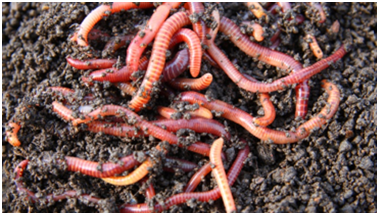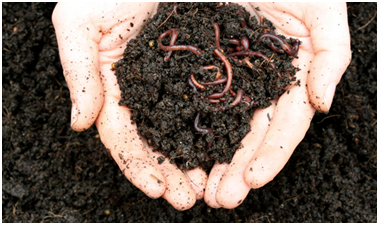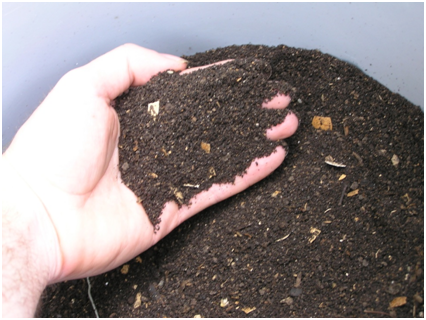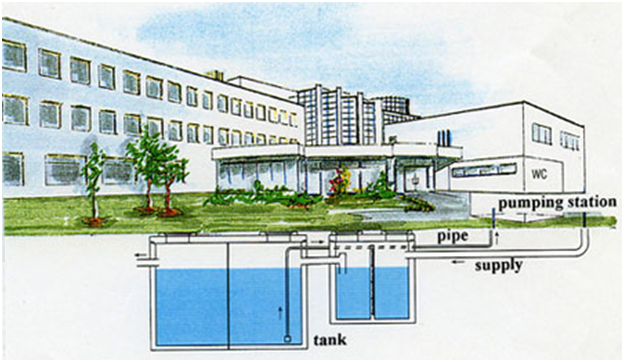Vermicomposting
Vermicompost is the product or process of composting using various worms, usually red wigglers, white worms, and other earthworms, to create a
heterogeneous mixture of decomposing vegetable or food waste, bedding materials, and vermicast, also called worm castings, worm humus or worm manure,
is the end-product of the breakdown of organic matter by an earthworm.
Vermicompost is an excellent, nutrient-rich organic fertilizer and soil conditioner. This process of producing vermicompost is called vermicomposting.
Vermicomposting is generally known as a nutrient rich source of organic compost used in farming and small scale sustainable, organic farming.
We, at DPS, Hapur, practice the process of Vermicomposting to produce organic manure. This process is shown to the students to develop environmental
ethics in them. The organic manure produced this way is used for the plants growing in school campus and also given to the farmers free of cost to
encourage the use of environment friendly materials in farming.



Rainwater Harvesting
Rainwater harvesting is the accumulation and deposition of rainwater for reuse on-site, rather than allowing it to run off. Rainwater can be collected
from rivers or roofs, and in many places the water collected is redirected to a deep pit (well, shaft, or borehole), a reservoir with percolation, or
collected from dew or fog with nets or other tools. Its uses include water for gardens, livestock, irrigation, domestic use with proper treatment, and
indoor heating for houses etc. The harvested water can also be used as drinking water, longer-term storage and for other purposes such as groundwater
recharge.
We, at DPS, Hapur, have a rainwater harvesting plant to recharge groundwater. By practicing this process we are trying to help the environment as well
as inculcate the environmental ethics in students.
